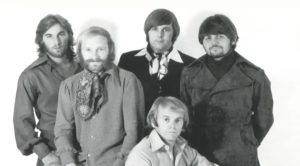10 Rock Songs Ruined By Being Commercial Soundtracks

Bob Seger / Youtube
Have you ever cringed as your favorite classic rock anthem blared out of your TV speakers during a commercial break? You’re not alone. We delved into the depths of online music forums to uncover the top ten songs that have been irrevocably tainted by their association with commercial advertisements. Prepare yourself for a journey through the highs and lows of rock ‘n’ roll, forever altered by the world of marketing.
These ten classic rock songs serve as cautionary tales of the perils of commercialization in the music industry. As advertisers continue to capitalize on nostalgia and familiarity, fans must grapple with the unsettling reality of hearing their favorite tunes repurposed to sell everything from diapers to luxury vacations. Let this be a reminder that while rock ‘n’ roll may never die, its integrity is constantly under threat from the relentless march of capitalism.
Bob Seger — Like a Rock
The poignant strains of Bob Seger’s “Like a Rock” were once synonymous with rugged Americana, but alas, the tune took a nosedive into commercial territory when it became the soundtrack for Chevrolet truck commercials. While some commend Seger for supporting auto workers in his hometown of Detroit, many can’t shake the feeling of betrayal whenever they hear those familiar chords.
Steppenwolf — Born to Be Wild
Whether it’s the image of diaper-clad babies or miniature motorcycles zooming across the screen, Steppenwolf’s “Born to Be Wild” has suffered multiple blows at the hands of commercialization. From Pampers to Power Wheels, this iconic anthem has been hijacked by advertisers seeking to inject a dose of rebellion into their products.
Iggy Pop — Lust for Life
The infectious energy of Iggy Pop’s “Lust for Life” took an unexpected detour into cruise ship territory when it was featured in a Royal Caribbean commercial. Fans were left scratching their heads, wondering how a song about hedonistic abandon could possibly sell luxury vacations.
The Beach Boys — Good Vibrations
Sunkist commercials of the late ’70s and early ’80s forever tarnished the sunny vibes of The Beach Boys’ “Good Vibrations.” With lyrics reimagined to peddle orange-flavored beverages, fans couldn’t help but lament the song’s descent into fruity commercialism.
Blondie — One Way or Another
From ketchup to cola, Blondie’s “One Way or Another” has infiltrated nearly every corner of the advertising world. However, it was a Swiffer commercial that truly incited fury among forum members, who couldn’t fathom the juxtaposition of cleaning products and punk rock anthems.
Pilot — It’s Magic
The ethereal charm of Pilot’s “It’s Magic” was shattered by the intrusive presence of Ozempic commercials. Now, listeners can’t help but hear the drug’s name echoing in their minds every time they revisit this once enchanting tune.
Foreigner — Double Vision
Burger King’s penchant for repurposing classic rock hits reached a new low with Foreigner’s “Double Vision.” Fans lamented the song’s descent into fast food jingles, mourning the loss of its original rebellious spirit.
The Cars — Just What I Needed
Once the epitome of new wave cool, The Cars’ “Just What I Needed” was reduced to background noise for Circuit City commercials. For many, the mere mention of the defunct electronics retailer conjures memories of this cringe-worthy pairing.
Led Zeppelin — Rock and Roll
In a controversial move, Cadillac secured the rights to Led Zeppelin’s “Rock and Roll” for a 2001 television ad campaign. Fans were divided, with some decrying the commercialization of their beloved band’s music, while others simply couldn’t bring themselves to listen to the song without envisioning luxury automobiles cruising down the highway.
Credence Clearwater Revival — Fortunate Son
Wrangler jeans commercials featuring CCR’s “Fortunate Son” sparked outrage among fans who felt the song’s anti-establishment message was lost on the denim-clad models. By stripping away the context of the lyrics, advertisers inadvertently trivialized the song’s powerful social commentary.





















